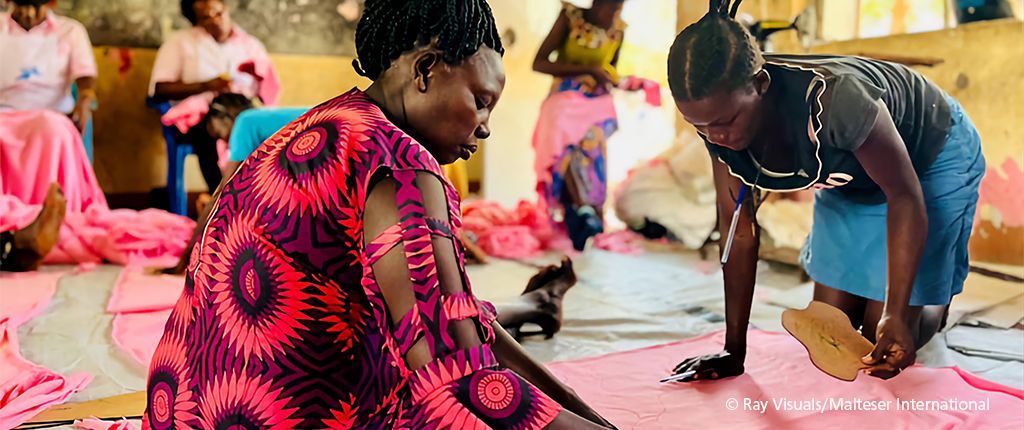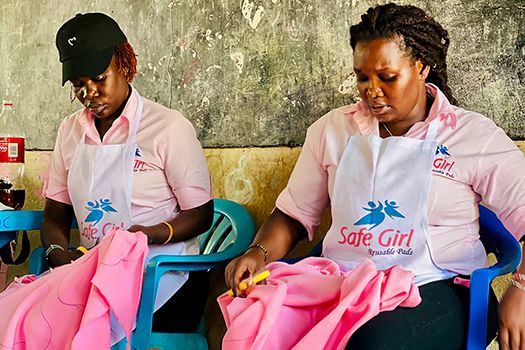
Eradicating period poverty and enhancing menstrual hygiene management for girls and women
Recognizing the critical need for sustainable solutions, Malteser International in Uganda embarked on a journey to support enterprising women at Rhino Camp settlement in Northwestern Uganda by enhancing their skills in reusable menstrual pad production. In 2023, MI took a significant step forward by training 20 tailors in pad production, and in February 2024, building on the success of that training, expanded those efforts to train 60 additional tailors. The training, facilitated by our partner, the Uganda Gejja Women Foundation, saw 5,000 reusable menstrual pads produced during a weeklong training. These were produced under the SafeGirl brand name.
Reusable menstrual pads offer a multitude of benefits. Economically, they alleviate financial burdens on families, allowing resources to be redirected towards essential needs and provide for those who sew them an income opportunity. Environmentally, they minimize waste and contribute to sustainability efforts and health-wise, they offer a safer, irritation-free option promoting better menstrual health. Educationally, reusable pads ensure girls can attend school without interruption, supporting academic success. Empowerment and awareness initiatives related to reusable pads educate and break taboos around menstruation. Additionally, local production of these pads boosts employment and economic development, ensuring cultural appropriateness and accessibility.
These pads aren't just pieces of fabric – they're symbols of empowerment, dignity, and hope. They're the result of hard work, dedication, and a shared vision for a better future.

“Before, I had nothing to use" - Our project participants share their stories
Florence Medina, 17, and Rose Kwaje, 16, are among the young project participants who received life-changing SafeGirl reusable pad kits in 2023, thanks to the collaborative efforts of Gejja Foundation and Malteser International. Each kit, equipped with 2 reusable pads and underwear, has brought significant financial relief to their families, sparing them the high cost of monthly sanitary pad purchases. Florence shares that she is grateful for the financial burden lifted from her family, while Grace highlighted a harsher reality, saying, "Before, I had nothing to use," which made attending school during her menstrual cycle a daunting challenge. This issue resonates deeply, as many girls opt to miss school during their periods, resorting to using bits of fabric and rags—a solution that is not only uncomfortable but also undignified. Through initiatives like these, we're not just providing aid; we're building capacity, fostering self-reliance, and empowering communities to thrive even in the face of adversity.
Join us in our mission to create a world where every woman and girl can live with dignity and opportunity.








